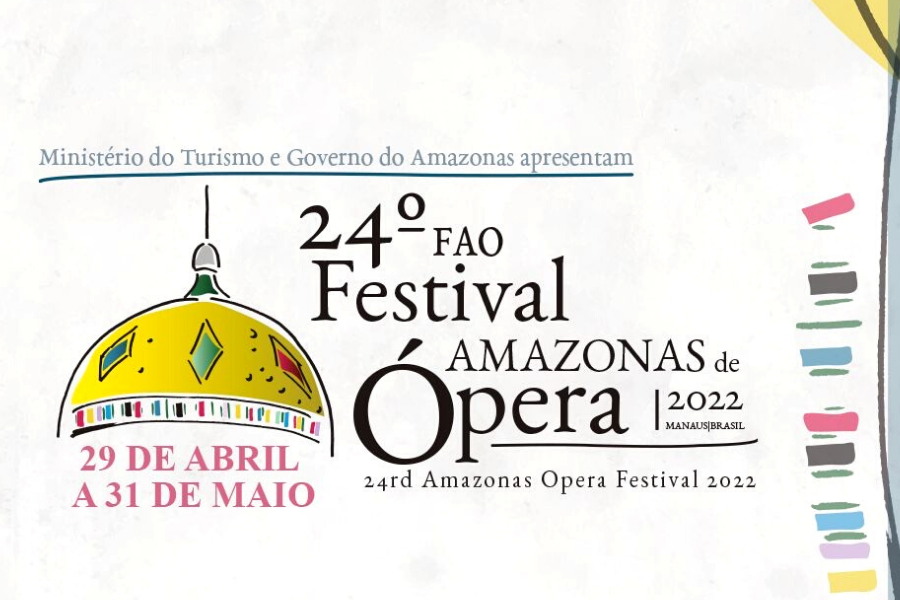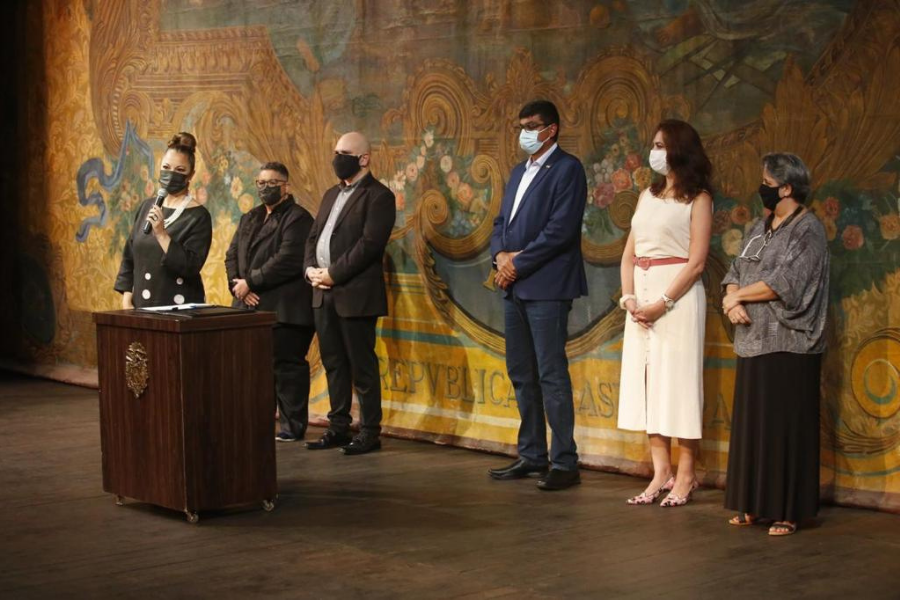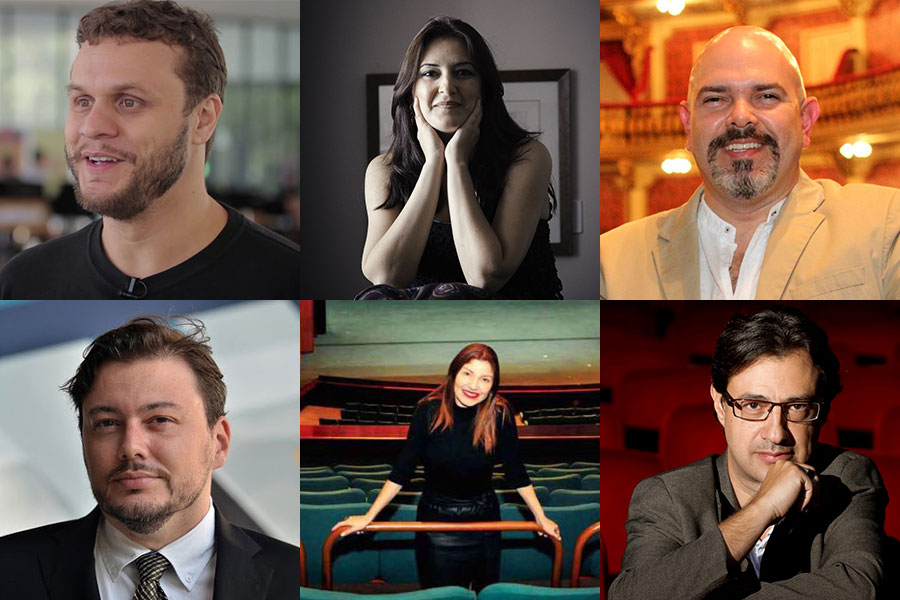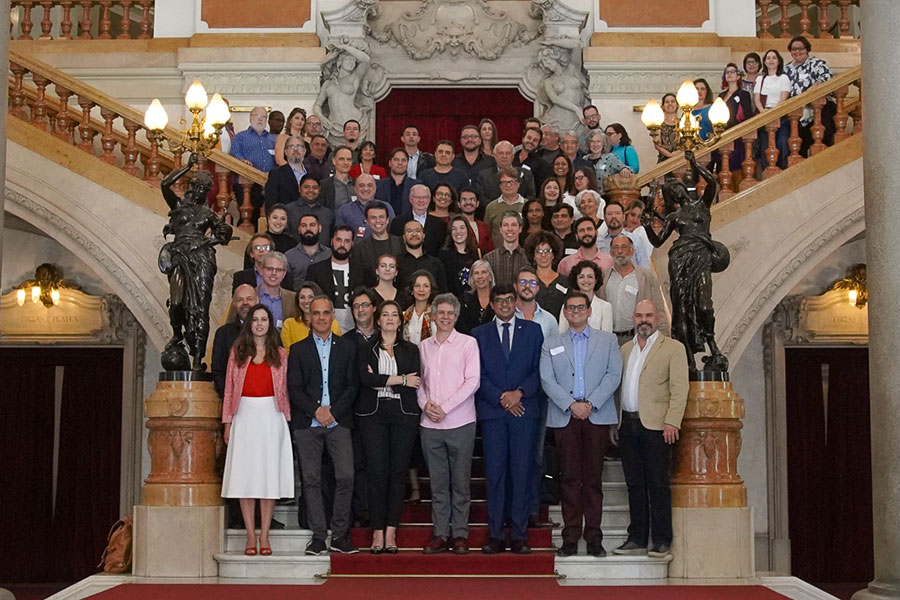El XIX Festival de Ópera do Theatro da Paz será online y con enfoque en la formación de cantantes y profesionales técnicos
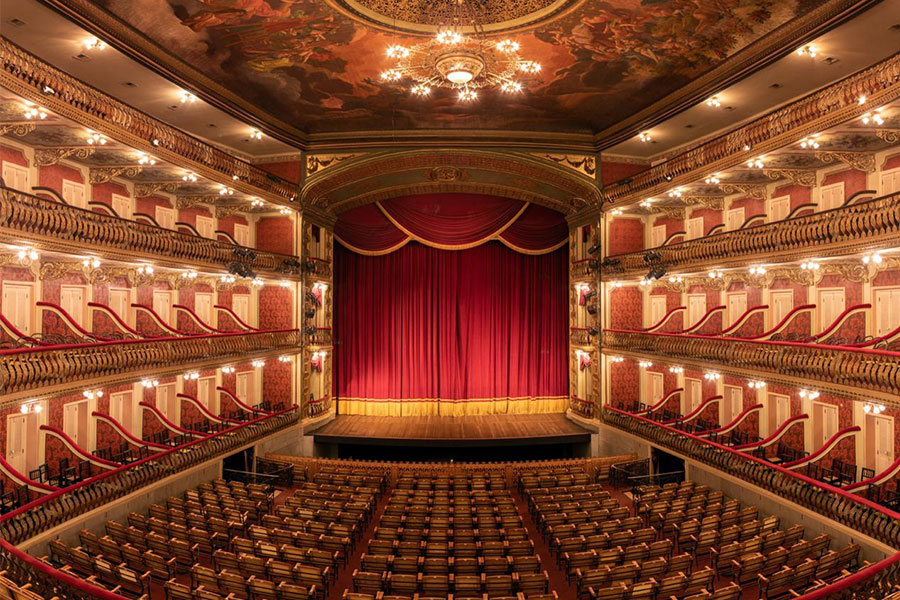
Becas para la segunda versión de su curso de formación en ópera para cantantes y profesionales técnicos, un ciclo de charlas de introducción a la ópera y el estreno de la ópera Il Tabarro de Puccini son los destacados del XIX Festival de Ópera do Theatro da Paz de Belém.
El XIX Festival de Ópera do Theatro da Paz presenta un nuevo formato para 2020, con énfasis en la capacitación de profesionales en la cadena de producción de artes escénicas y musicales, considerando los desafíos impuestos por la nueva pandemia de coronavirus. El proyecto de esta edición es la base para el comienzo de la transformación del Theatro da Paz, en un futuro próximo, en una escuela de teatro. La ceremonia contó con la presentación del tenor Atalla Ayan, la pianista Adriana Azulay y las cantantes Lanna Bastos, Hosana Ramos y Kézia Andrade, directamente desde el escenario del Theatro da Paz.
Este es un logro del Gobierno del Estado de Pará, a través de la Secretaría de Estado de Cultura (SECULT), Theatro da Paz y Paraense Music Academy (APM), con el apoyo de la Fundación de Radiodifusión Paraense (Funtelpa). En esta edición, con énfasis en la capacitación de profesionales en la cadena artística de las artes musicales y escénicas, se ofrecerán 80 becas para el II Curso de Entrenamiento de Ópera, 40 de las cuales están destinadas a cantantes de ópera y 40 para técnicos de teatro. El curso durará cinco meses, a través de una plataforma digital, con ocho talleres para cada grupo.
“Esta expansión de la política de capacitación profesional del festival responde de manera muy asertiva a los nuevos desafíos impuestos por la pandemia. La inclusión de técnicos en la red de capacitación, el modelo de clases remotas y el hecho de que aumentamos el alcance de los profesionales seleccionados para el programa de becas en cuatro veces consolida el proyecto que estamos construyendo para transformar nuestro Theatro da Paz en el futuro cercano, en la escuela de teatro ”, dice la Secretaria de Estado de Cultura Úrsula Vidal.
Para el Director General del Festival de Ópera, Daniel Araújo, este es un momento para probar nuevas formas de llevar a cabo el festival, que está a punto de completar dos décadas de existencia y alentar cada vez más a la fuerza laboral para este tipo de espectáculo. “En marzo, ya teníamos todo programado para este año y, luego, con la pandemia, necesitamos adaptarnos a los mecanismos de interacción virtual y adaptar el proyecto del festival. Hicimos pruebas y ajustes para que este nuevo formato incluyera no solo a los artistas sino a toda la cadena productiva de la ópera, ya que el sector cultural fue el primero que se detuvo ”, comenta.
La Directora Artística del festival, Jena Vieira destaca que esta es una fase de reinvención del espectáculo, con acciones que podrán cubrir todo el estado, permitiendo que artistas y productores que no están físicamente en Belém sean contemplados con el curso. “Estudiamos cómo otros teatros en Brasil y en el extranjero están haciendo sus conciertos y cómo los nuevos medios y las nuevas tecnologías son fundamentales. En este formato virtual, todo Pará podrá participar en el festival a través de nuestro sitio web, canales y redes sociales ”, celebra.
Con la misión de producir el festival, la Directora de Producción Nandressa Núñez también cree en la relevancia de los cambios del evento, recordando que el año pasado se presentó un festival diferenciado. “Por primera vez en la historia, recorrimos los Territorios por la Paz, en vecindarios periféricos, e implementamos el primer curso de capacitación. Este año, ampliamos las vacantes para el curso de capacitación y queremos incluir, además de cantantes líricos, diseñadores de vestuario, escenógrafos, maquilladores, directores de escena, dramaturgos, etc., con el objetivo de capacitar y garantizar recursos a estos profesionales ”, explica.
II CURSO DE FORMACIÓN EN ÓPERA | Agosto a diciembre
La inscripción a los cursos de formación fue gratuita. Los seleccionados tendrán clases a través de la plataforma digital hasta diciembre. A los cantantes se les ofrecerán los siguientes cursos: Creación de contenido digital; Preparación de repertorio; Preparación musical de escenas de ópera; Introducción a la historia de la ópera; Análisis de Carácter y Construcción; Estudio del texto dramático; Dicción para cantantes y preparación, creación e interpretación teatral para cantantes de ópera. Para los técnicos, los talleres serán: Nociones básicas de lectura de partituras musicales; Dirección de escenario y contracarga; Introducción al sonido en la ópera; Introducción a la iluminación escénica en la Ópera; Nociones básicas de dirección de ópera; Maquillaje artístico para la ópera; Preparación de subtítulos y disfraces de ópera para espectáculos de ópera.
Los resultados con los seleccionados se anunciarán el 24/07 y las clases están programadas para comenzar el 03/08, de acuerdo con el siguiente calendario:
Julio
1 a 10 – Registro
11 a 15 – Validación
16 y 17 – Fecha límite para apelar
18 – Lista aprobada de competidores
19 a 23 – Análisis de aplicaciones
24 – Publicación del resultado
27 y 28 – Fecha límite para apelar
29 a 31 – Inscripciones
Agosto
03 – Comienzo de clase
INTRODUCCIÓN A LA HISTORIA DE LA ÓPERA | 31 de agosto, 2 y 4 de septiembre
Este año, una de las novedades del Festival es la serie de conferencias y entrevistas que se transmitirán a través de nuestros canales digitales.
Sérgio Casoy realiza un recorrido musical por los distintos períodos de la historia del teatro de ópera que se extiende desde la creación de este género fascinante en Florencia desde el siglo XVI hasta el siglo XX, abundantemente ilustrado con ejemplos en video.
1er. clase: La prehistoria de la ópera en Florencia. El nacimiento de la ópera. El período barroco en Francia e Italia.
2do. clase: del clasicismo al romanticismo.
3er. clase: Verdi y Wagner. Escuelas Nacionales Scapigliatura y Post-Romanticismo. Verismo La llegada del siglo XX.
ÓPERA IL TABARRO | 1 de diciembre
La ópera programada para el cierre del XIX Festival de Ópera do Theatro da Paz es Il Tabarro, la primera ópera de Il trittico de Puccini, que también está compuesta por Suor Angelica y Gianni Schicchi.
Ficha técnica
Dirección y dirección musical: Gabriel Rhein-Schirato
Dirección escénica: Jena Vieira
Director de producción: Nandressa Nuñez
Asistente de producción: Lilian Pinheiro
Escenografía: Carlos Dalarmelino
Asistente de escenografía: Ribamar Diniz y Claudio Bastos.
Diseño de vestuario: Fernando Leite
Asistente diseñador de vestuario: Hélio Alvarez
Iluminación: Wagner Pinto
Visagismo: Omar Junior
Stage manager: Claudio Bastos
Contracarga: Laura Conceicao
Subtítulo: Gilda Maia


